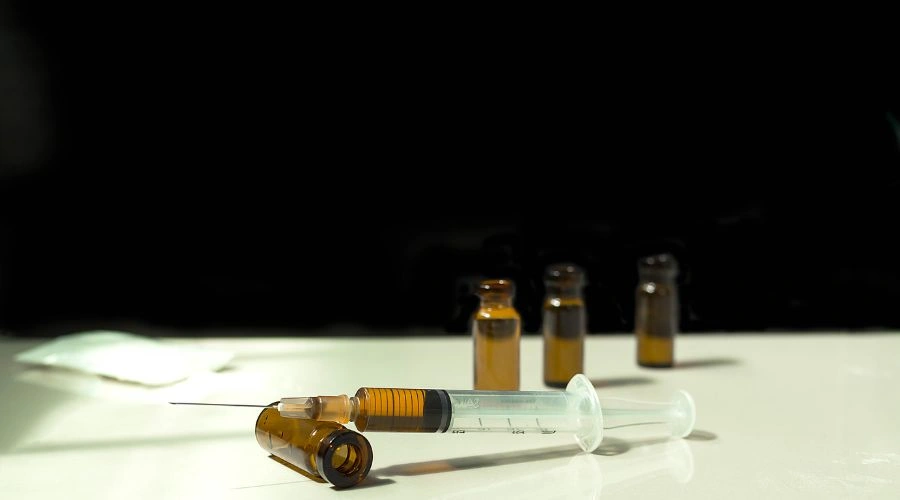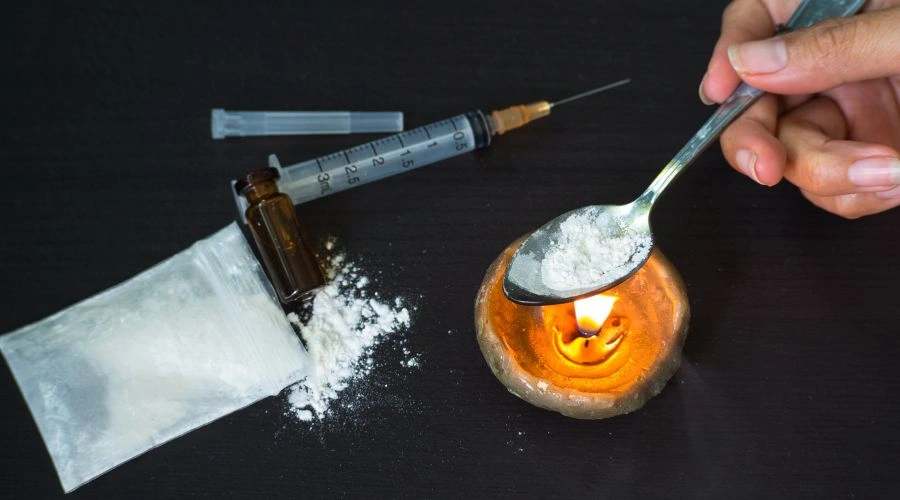The Potential Risks of Ketamine Infusions for Those in Recovery
Ketamine therapy is a relatively new treatment for depression. Until very recently, ketamine therapy did not exist and almost all ketamine use was illicit. People are still abusing it today, but there is also a legal market for it now as a depression treatment.
There is a significant potential risk for ketamine therapy, and that is the fact that ketamine itself carries an addiction risk. People suffering from a substance use disorder are at a higher risk of developing an addiction to ketamine.
If you are searching for answers to the question, “Does ketamine infusion therapy get you high?,” you have found the right resource.
At South Shores Detox, many clients come through the doors struggling with a dependence on ketamine. The truth is that ketamine therapy gets you high. Part of the therapy includes feelings of euphoria being utilized as part of the treatment for depression symptoms.
Throughout this post you will learn more about ketamine therapy, and how it produces feelings of being high, along with the potential risks and whether or not ketamine therapy may or may not be right for you.
Some Background on Ketamine
Ketamine was first synthesized in 1962 by Calvin Stevens. He was attempting to design a safer alternative to PCP which has strong hallucinogenic and neurotoxic effects. The first human trials in 1965 described it as a strong dissociative anesthetic. It produces a trance-like state with pain relief, sedation, and amnesia.
In 1970 the FDA approved ketamine as an anesthetic. Because of its rapid onset and relatively desirable safety profile, it quickly became popular in operating rooms and emergency settings. The reason it became more popular than traditional opiates was the lack of respiratory depression.
Ketamine Becomes a Popular Substance of Abuse
Throughout the 80s and 90s, it grew in popularity as a club drug, gaining widespread use throughout the rave scenes. Ketamine spread through these underground scenes in places like the UK, Hong Kong, and the U.S. This popularity could be attributed to a few different reasons, one being the fact that it was cheaper than other psychedelics like LSD.
At high doses, ketamine induces a state where users feel detached from their bodies and surroundings. The feeling is often described as a floating, out-of-body, experience. Some seek this experience for its surreal, sometimes spiritual qualities.
Ketamine warps time and space perception making music and lights feel more vivid or immersive. This can amplify the atmosphere, especially when combined with electronic music and visuals in rave settings. Compared to LSD or psilocybin, ketamine’s effects come on quickly and last a shorter time.
Ketamine in Today’s Society
Ketamine is still abused in the underground festival and rave scenes like Coachella, Burning Man, and Electric Daisy Carnival. However, a new development is the recent widespread issue of facilities offering ketamine infusion therapy in clinical settings around the nation.
It has become a booming industry and lacks sufficient regulation. In addition, Ketamine also does not show up on many drug tests. Ketamine therapy for depression symptoms is relatively new and is being heavily advertised as a beneficial option for treatment resistant depression.
There is a legitimate use for ketamine therapy, but the fact is there has not been sufficient regulation put in place to stop people from abusing this legality. Alongside ‘high dose’ ketamine offered in an office setting, many other providers such as MindBloom and Joyous have begun offering ‘low dose’ ketamine troches (lozenges) by telehealth appointment and to be taken daily.
For those with addiction issues or former dependence on substances, this can create the foundation for a harmful new drug dependence.
Does Ketamine Therapy Work?
Treatment-resistant depression is technically the only issue that should be treated with ketamine treatment. However, ketamine therapy is being utilized for the treatment of many mental health conditions.
Treatment-resistant depression is when two or more traditional antidepressants have failed. This is the primary and most studied use for ketamine therapy.
Off-Label Prescription of Ketamine Therapy
Due to the profit potential of ketamine therapy, it is being prescribed for many things outside of its approved purpose. Some diagnoses include anxiety, post-traumatic stress disorder, and bipolar disorder.
It has also been prescribed for chronic pain. These chronic pain patients taking ketamine sometimes describe feeling relief from the ketamine infusion therapy. Although it can help with the symptoms of all of these diagnoses, the fact remains that there are often less dangerous options available that are either less profitable or less appealing to the consumer.
Many people, particularly those with past history of substance use disorders, are drawn to ketamine treatment for the fact that it gets you high and has recently become legal to get a prescription for.
Ketamine Therapy Should Include Psychotherapy
Ketamine therapy is not a cure-all for mental health challenges. It can be used in conjunction with other traditional psychotherapies to make the healing work easier. Ketamine-assisted therapy requires medical supervision. As mentioned above, many online prescribers will simply ship ketamine to patients. This is a loophole some are using to abuse ketamine legally.
The Abuse and Addiction Potential of Ketamine
Ketamine is more psychologically addictive than physically. People can become hooked on the dissociative effects. Some users start taking it daily or multiple times a day to avoid dealing with life. It is hard to quit as this escape becomes your primary coping mechanism.
With frequent use, tolerance builds quickly. You will have to do higher doses to get the same effect. This can lead to escalating use and binging behavior which becomes increasingly destructive.
Using ketamine to escape psychological pain instead of treating depressive symptoms is when it quickly switches from use to abuse.
Signs that Ketamine Use Has Shifted from Use to Abuse
Mixing ketamine with other drugs because it starts to lack the effect it once did due to tolerance is a huge red flag that you may be developing a substance abuse issue. Using alone or hiding the use is another significant indicator of trouble.
If you have struggled with substance abuse issues in the past it is highly discouraged to partake in ketamine therapy due to the high potential for abuse.
Physical Effects of Prolonged Ketamine Abuse
Ketamine use can cause serious physical problems. Ketamine is highly toxic to your bladder and kidneys. Many patients undergoing ketamine therapy eventually develop something called ketamine-induced ulcerative cystitis.
This will cause you to urinate blood and can be extremely painful. According to the National Institute of Health website, bladder issues caused by ketamine include symptoms like those of a urinary tract infection.
Cognitive impairment is another side effect associated with ketamine use. People begin to have memory problems and mental decline in general. Increased blood pressure and gastrointestinal issues are also common side effects. The risks of increased blood pressure are cardiac issues like myocarditis and cardiac arrest.
Withdrawal Symptoms of Ketamine
Ketamine users describe feeling cravings and other symptoms of withdrawal when stopping their ketamine use. Anxiety and irritability are other symptoms many have reported.
Although it is documented that ketamine does not have traditional withdrawal symptoms like opioids or benzodiazepines, there is massive anecdotal evidence that it is increasingly difficult to stop the deeper one gets into ketamine use.
South Shores Detox treats many clients attempting to stop using ketamine. Ketamine abuse is a real problem amongst the substance abuse community. Many become dependent on the drug. Although they started using it under sanctioned medical supervision, it gradually became a problem as their use progressed to abuse.
A Look at How and Why Friends Star Matthew Perry Died from Ketamine Abuse
One example to point to is actor Matthew Perry who after struggling with substance abuse issues was able to get himself sober. After being in recovery for years, this new explosion of ketamine therapy options emerged on the scene.
He began ketamine therapy and soon found himself abusing it more and more until he eventually overdosed on ketamine and died. This tragic story illustrates the dangers that aren’t often highlighted when ketamine treatment is advertised.
Getting Treatment for Ketamine Abuse Issues
As stated before, many clients come to South Shores Detox suffering from ketamine dependence. Some of these people innocently began ketamine therapy without knowing the potential dangers or that ketamine therapy can lead to abuse.
If you are suffering, or having a hard time stopping your ketamine use, South Shores Detox offers solutions tailored to you. Not only will our caring team be able to help with your ketamine dependence, but they will also help you address the mental health issues that may have led you to ketamine therapy in the first place.
South Shores’ treatment options include mental health treatment and substance abuse treatment together as a dual diagnosis program. Their beautiful facility in sunny Dana Point, California offers amenities to ease your transition to a healthier way of life.
Call Admissions today and discuss which treatment options are right for you. Living dependent on ketamine therapy is no way to live, and a better life awaits you at South Shores Detox.





